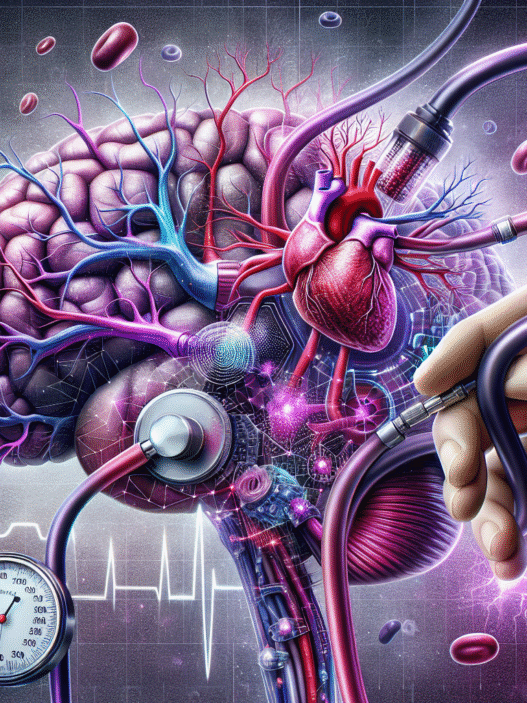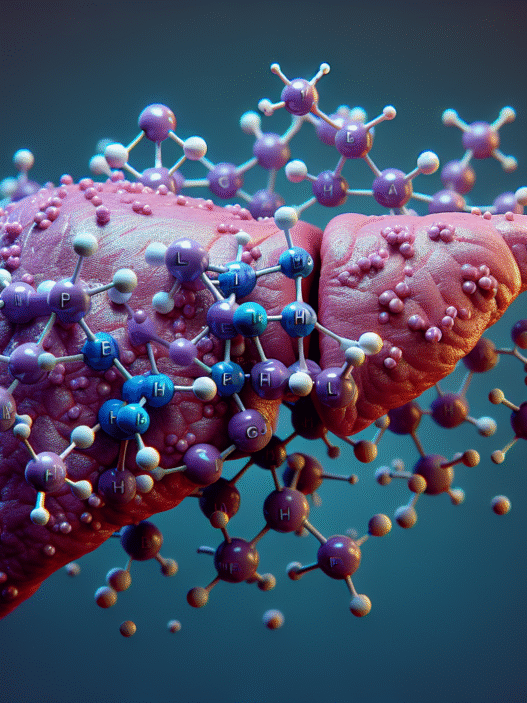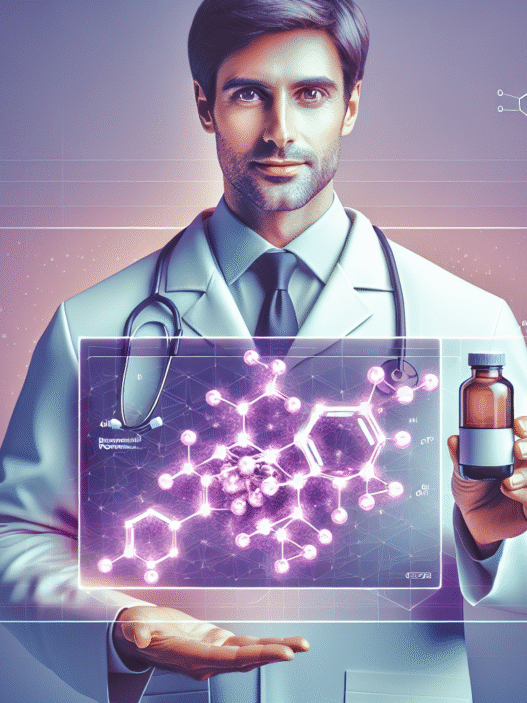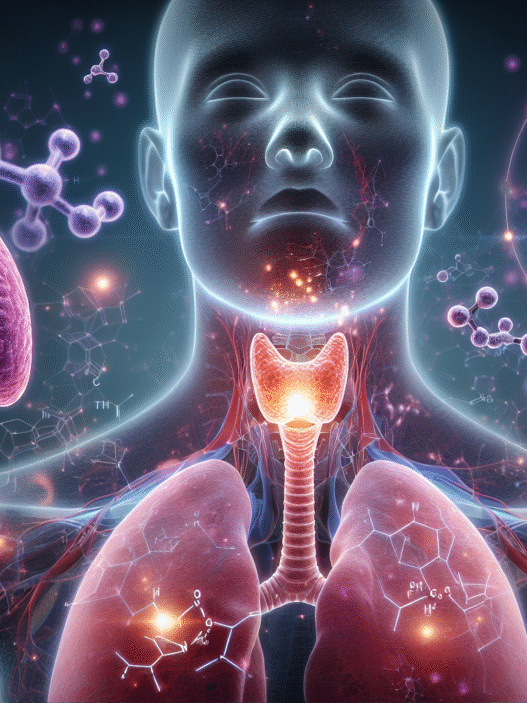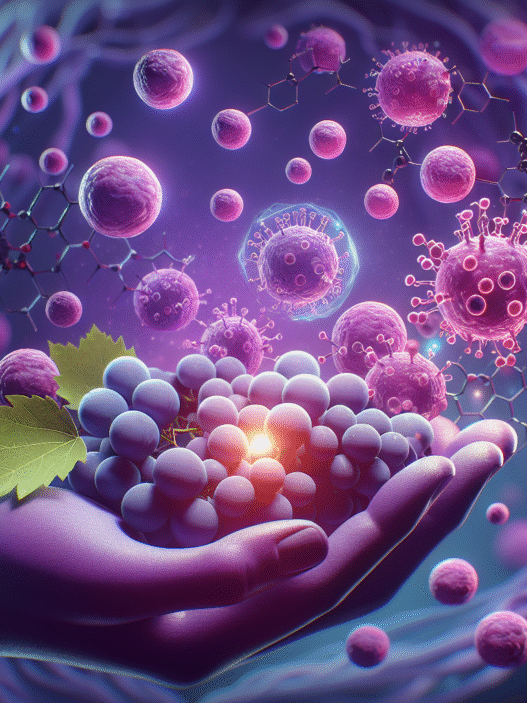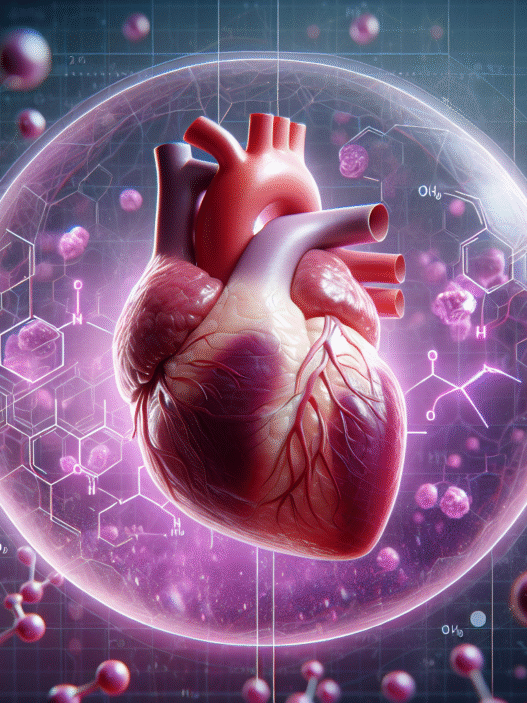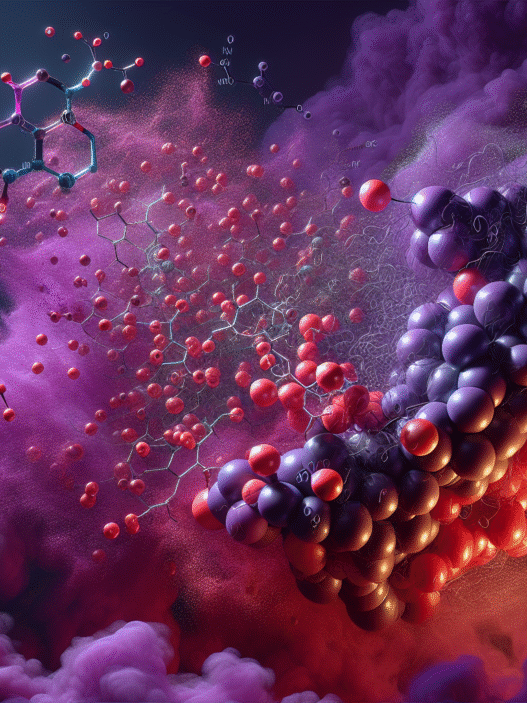Understanding Resveratrol
What is Resveratrol?
Resveratrol is a naturally occurring compound classified as a polyphenol, famous for its potential health benefits, particularly in the context of anti-aging and disease prevention. Often found in small amounts in various plants, resveratrol has gained attention for its antioxidant properties and ability to influence cellular processes involved in aging. While it is present in red wine, its presence in whole foods is often debated, leading to ongoing research and interest among health enthusiasts.
Despite the praised benefits, resveratrol demonstrates poor in vivo pharmacokinetics. Studies have shown that it has low bioavailability and rapid metabolism, resulting in only trace amounts remaining in the plasma after oral intake. This complexity raises questions regarding its efficacy and the true impact on health (PMC).
Sources of Resveratrol
Resveratrol is found in a variety of foods. The primary dietary sources include:
| Food Source | Resveratrol Content (mg per 100g) |
|---|---|
| Red Wine | 0.2 – 5.8 |
| Grapes | 0.2 – 1.1 |
| Dark Chocolate | 0.3 – 1.9 |
| Peanuts | 0.02 – 0.2 |
| Berries (blueberries, and cranberries) | 0.1 – 0.4 |
Red wine is particularly noted for its significant resveratrol levels, contributing to the popular belief in the “French Paradox” regarding heart health.
Resveratrol exhibits known anti-inflammatory effects, enhancing human immune cell function, which may account for some of its health claims (WebMD). However, individuals should consider all aspects, including potential downsides when evaluating the benefits of resveratrol. For more information on any toxicity concerns, refer to our article discussing whether resveratrol is toxic to the liver.
Natural health seekers may find that incorporating these foods into their diet could contribute to their wellness goals, but consultation with healthcare providers is essential. For advice on the use of resveratrol and its recommendations, visit our page on doctors’ opinions regarding resveratrol.
Resveratrol Benefits
Resveratrol, a naturally occurring compound found in various plants, has garnered significant attention for its potential health benefits. The research surrounding resveratrol highlights its various properties, such as its role in anti-aging, disease prevention, and overall health enhancement.
Health Benefits of Resveratrol
Research suggests that resveratrol can improve glycemic control in individuals with type 2 diabetes mellitus. Additionally, it has shown promising results in mildly improving renal function and positively affecting lipid profiles and liver enzymes in patients with metabolic syndrome and related disorders.
| Benefit | Observations |
|---|---|
| Glycemic Control | Improves glycemic control in type 2 diabetes |
| Renal Function | Mild improvement in patients with metabolic syndrome |
| Lipid Profile | Positive effects on lipid profiles |
| Liver Enzymes | Improved liver enzyme functions |
Resveratrol and Anti-Aging
Resveratrol’s anti-aging properties are linked to its ability to combat oxidative stress. Preclinical studies have demonstrated that it exerts antioxidant and anti-inflammatory capabilities. These effects may aid in enhancing endothelial function and improving nitric oxide production, which is vital for vascular health. Such benefits are particularly notable at low concentrations, aligning with physiological levels found in humans.
| Anti-Aging Effect | Description |
|---|---|
| Antioxidant Properties | Reduces oxidative stress |
| Endothelial Function | Improves blood vessel health |
| Inhibition of Inflammation | May help in reducing inflammation linked to aging |
Resveratrol and Disease Prevention
Resveratrol is also noted for its cardioprotective benefits. It appears to improve inflammatory markers, atherogenic profiles, glucose metabolism, and endothelial function, making it potentially useful in cardiovascular health (Source). However, it is essential to note that unresolved safety concerns remain regarding the chronic consumption of high doses, particularly for individuals on certain medications.
| Disease Prevention Aspect | Effects |
|---|---|
| Cardiovascular Health | Improves inflammatory markers and atherogenic profiles |
| Glucose Metabolism | Enhances metabolic functions |
| Endothelial Function | Supports vascular health |
Overall, the benefits of resveratrol extend across multiple health domains, particularly in relation to anti-aging and disease prevention. However, as with any supplement, it is crucial to consider safety and consult with healthcare professionals regarding its use, especially if taking other medications. For more information on whether do doctors recommend resveratrol?, please refer to our dedicated article.
Potential Downsides of Resveratrol
While resveratrol is often praised for its health benefits, it is important to consider its potential downsides. This section highlights interactions with medications, side effects associated with high doses, and its impact on blood clotting.
Resveratrol Interactions with Medications
Resveratrol can interact with various medications, particularly at high supplemental doses exceeding 1 gram per day. These high doses can interfere with cytochrome P450 enzymes, leading to significant drug interactions when taken concurrently with other medications.
| Medication Class | Possible Interaction |
|---|---|
| Anticoagulants | Increased risk of bleeding |
| Antiplatelets | Increased risk of bleeding |
| NSAIDs | Increased risk of bleeding |
Given these interactions, individuals are advised to consult healthcare providers before starting resveratrol, particularly if they are on any medications.
Side Effects of High Resveratrol Doses
Taking high doses of resveratrol beyond 2.5 grams per day may lead to adverse side effects. Some reported side effects include:
| Side Effect | Description |
|---|---|
| Cramping | Discomfort in the abdominal region |
| Flatulence | Increased gas production |
| Nausea | Feelings of sickness in the stomach |
Excessive intake can also lead to its pro-oxidizing properties, resulting in cellular DNA damage and oxidative stress (Medical News Today).
Impact on Blood Clotting
Resveratrol may affect blood clotting, particularly in individuals taking medications that influence clotting processes. It can interfere with human platelet aggregation, thus increasing the risk of bleeding when combined with anticoagulants, antiplatelets, or non-steroidal anti-inflammatory drugs (NSAIDs).
Individuals considering resveratrol supplements or products should be aware of these risks. Additional research is needed to fully understand the implications of these effects and interactions. For those concerned about the safety and effectiveness of resveratrol, inquiries such as do doctors recommend resveratrol? can provide valuable insights.
Resveratrol Safety Concerns
When considering resveratrol as part of a health regimen, it is vital to understand the potential safety concerns related to its use. This section explores the risk of adverse effects, the safety of supplements, and the importance of consulting healthcare professionals before starting resveratrol supplementation.
Risk of Adverse Effects
High doses of resveratrol can lead to various adverse effects. While it is generally safe to consume in moderate amounts, taking doses higher than 2.5 grams (g) per day may result in side effects such as cramping, flatulence, and nausea. For people curious about the toxicity of resveratrol, it is important to note that taking up to 5 grams daily is considered technically safe, but caution is recommended.
| Dose of Resveratrol | Potential Side Effects |
|---|---|
| Up to 2.5 g | Minimal to no side effects |
| 2.5 g to 5 g | Cramping, flatulence, nausea |
Figures are based on Medical News Today.
Safety of Resveratrol Supplements
The safety of resveratrol supplements remains a topic of discussion among health professionals. High doses of resveratrol may inhibit enzyme activity, potentially increasing the bioavailability and toxicity of certain medications. Although the complete relationship between resveratrol and drug interactions is not fully understood, users should be cautious.
Before considering supplements, individuals should also be aware of how resveratrol might interact with various medications. Its effects on blood clotting can also pose risks, particularly for individuals taking anticoagulants, antiplatelet drugs, or nonsteroidal anti-inflammatory drugs (Medical News Today).
Consultation Before Resveratrol Use
Before incorporating resveratrol into a health routine, consulting healthcare professionals is highly recommended. Doctors can provide personalized advice based on an individual’s health history and any medications they may be taking. This ensures that resveratrol use is safe and effective.
Those interested in understanding if resveratrol is suitable for their health goals can read our article on do doctors recommend resveratrol?. Additionally, it may be useful to explore other health considerations, such as whether resveratrol can raise blood pressure by visiting our page on can resveratrol raise blood pressure?.
Being informed about the potential risks associated with resveratrol and seeking professional guidance can help individuals make educated decisions regarding their health and wellness journey.
Resveratrol Research Insights
Research on resveratrol has provided valuable insights into its effects and potential downsides. Understanding these aspects is essential for those seeking holistic health benefits.
In Vivo Studies on Resveratrol
In vivo studies exploring resveratrol have primarily focused on its pharmacokinetics, which reveal challenges related to bioavailability. Resveratrol is known to have poor pharmacokinetics due to low bioavailability and rapid metabolism. Following oral intake, only trace amounts of resveratrol remain in the plasma. Its low water solubility and high susceptibility to pH and temperature variations adversely affect its stability and absorption. Metabolism occurs predominantly in the intestine and liver, resulting in significantly low plasma concentrations of un-metabolized resveratrol (PMC).
Additionally, studies in rats fed a high-fat diet showed that resveratrol administration could restore circadian gene oscillations and improve metabolic parameters such as body weight, lipid profiles, and insulin resistance (PMC). These findings indicate its potential role in metabolic health, although the implications of its bioavailability remain critical.
High-Dose Resveratrol Effects
The effects of high doses of resveratrol have raised safety concerns in scientific research. Animal studies have reported significant toxicity from high oral doses, leading to dangerous conditions such as cardiac inflammation, severe nephropathy, and liver damage, along with alterations in blood enzyme levels (NCBI). The data indicate that high doses can lead to adverse effects and even death in experimental models.
The hormetic response has been noted, where resveratrol can have cardioprotective effects at lower doses, yet harmful effects emerge at higher dosages. Researchers emphasize caution when considering resveratrol supplementation, especially in high amounts.
Resveratrol Metabolism and Bioavailability
The metabolism and bioavailability of resveratrol play a crucial role in its overall efficacy. Studies have shown that resveratrol undergoes extensive metabolism in the body, leading to low plasma concentrations of active compounds. This presents a challenge for harnessing its potential health benefits effectively.
Notably, treatment in HepG2 cells at a concentration of 100 µM demonstrated that resveratrol could restore circadian clock-related gene expression and improve insulin sensitivity. Despite these promising findings at the cellular level, the effective delivery of resveratrol in humans may be limited by its metabolic characteristics (PMC). For those considering resveratrol for health benefits, it is vital to consult resources discussing its safety and potential interactions, such as whether resveratrol is toxic to the liver or can resveratrol raise blood pressure.
The exploration of resveratrol in research continues to shed light on its multifaceted effects, suggesting both potential benefits and important risks to consider.
Future of Resveratrol
As interest in resveratrol continues to grow, understanding its full potential requires further investigation. Significant questions remain regarding its effectiveness and safety in human applications.
Need for Human Trials
Although numerous studies have been conducted examining the benefits of resveratrol, the majority of this research is based on in vitro and animal models. To date, there is a lack of definitive evidence from randomized clinical trials in humans that fully validate the purported benefits of resveratrol (Source). This emphasizes the necessity for more extensive human trials to corroborate the findings from preclinical research.
The lack of comprehensive clinical studies raises concerns, particularly regarding dosage and long-term effects. Most preclinical studies have utilized high concentrations of resveratrol, which may not accurately reflect human physiology and could pose safety risks, particularly for those on medications.
Resveratrol Paradox
The unresolved “Resveratrol Paradox” presents a challenge in understanding the compound’s benefits. While resveratrol demonstrates low bioavailability, it also showcases high bioactivity. This paradox complicates the comprehension of how such a compound can have significant effects in low concentrations while having limited absorption in the body (Source).
This inconsistency calls for more in-depth research to identify the specific mechanisms responsible for resveratrol’s positive health effects. Understanding these factors may help clarify why resveratrol might be effective, despite its low bioavailability.
Resveratrol’s Antioxidant Properties
Preclinical studies have highlighted resveratrol’s antioxidant and anti-inflammatory properties. Resveratrol has been shown to enhance endothelial nitric oxide levels and inhibit platelet aggregation, even at low micromolar concentrations, indicating that its effects align more closely with physiological levels in humans.
These properties contribute to the mounting interest in resveratrol as a potential health supplement, especially in the realms of heart health and aging. However, without sufficient human research and trials, its long-term safety and effectiveness remain uncertain.
For those interested in incorporating resveratrol into their wellness routine, it is important to consider whether resveratrol is toxic to the liver and whether limitations exist regarding its health claims before making a decision.














